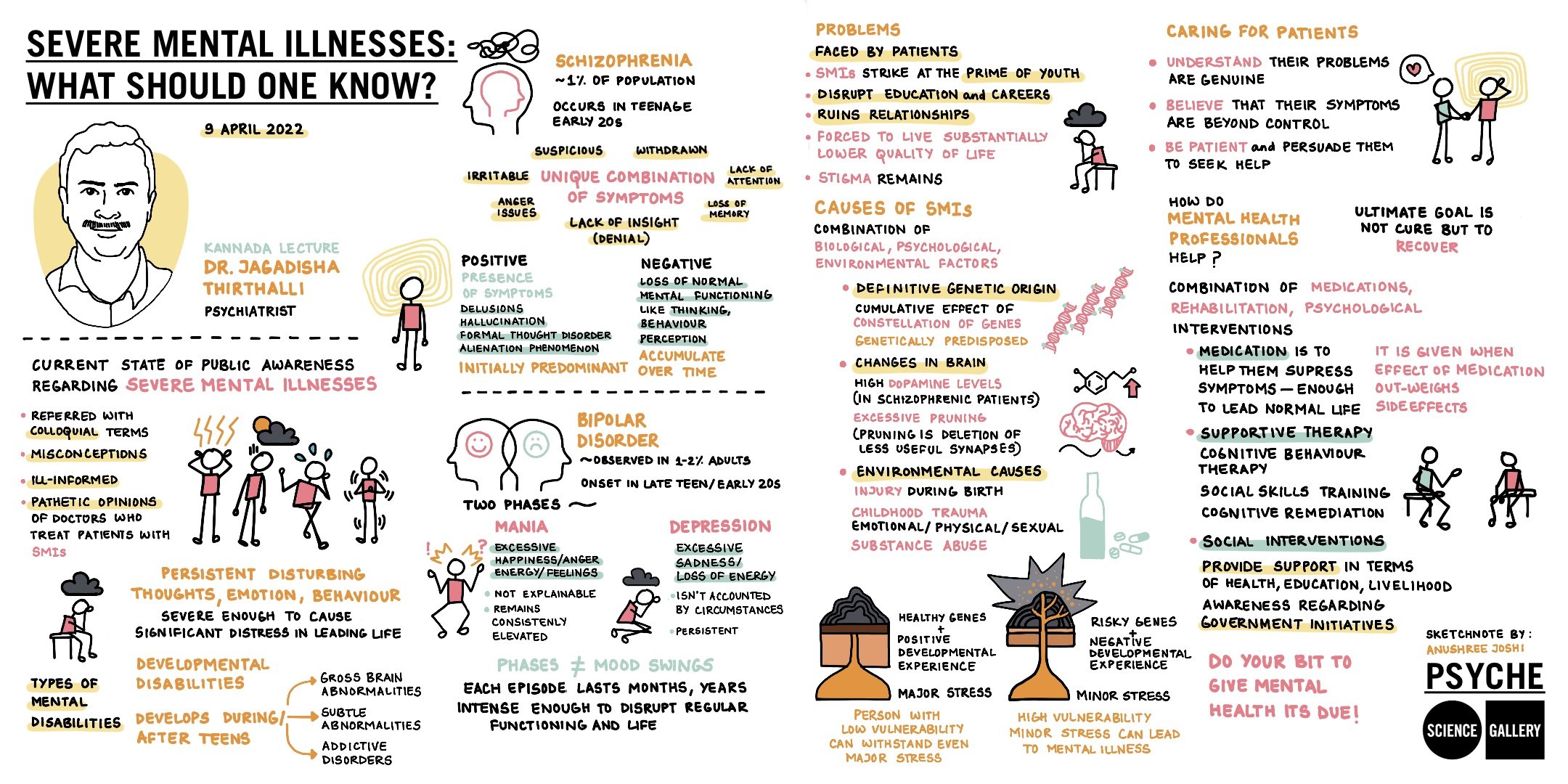Severe Mental Illness: What Should One Know? | In Kannada
Mental illnesses are complex, take diverse forms, and impact people differently. Some rare mental illnesses can have serious consequences for both the person living with it, as well as their family.
Not all mental health conditions are equally understood by people, and this can lead to prejudiced attitudes and stigmatising behaviours. In addition to the illness itself, individuals who live with these conditions face discrimination, a lack of opportunities, and several other systemic disadvantages. In an attempt to combat the stigma around severe mental illness, this talk sought to reflect upon the common understandings of mental disorders, while also bringing to light some of their unrecognised characteristics.
About the Psychiatrist
Jagadisha Thirthalli is a Professor of Psychiatry and head of Psychiatric Rehabilitation Services (PRS) at National Institute for Mental Health and Neuroscience (NIMHANS). He has deep interest in improving conditions of persons with severe mental illnesses who live in different rural and urban communities. His team has been following up about 700 individuals with severe mental illnesses in three rural areas; this has resulted in research papers addressing multiple dimensions of the course and outcome of treating individuals with severe mental illnesses. In addition to this, he has an interest and research expertise in the field of modulation of brain activity using devices like the Electroconvulsive Therapy (ECT) and Transcranial Magnetic Stimulation (TMS).





